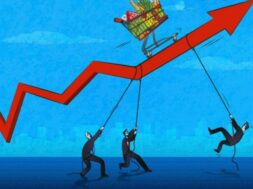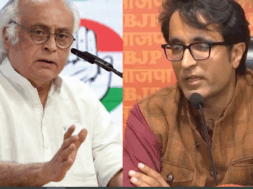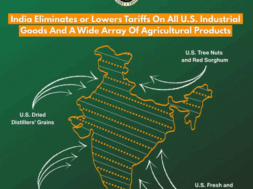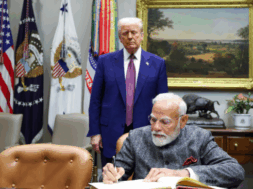
Global recession: Many leading economies to suffer in 12 months, says Nomura
Virendra Pandit
New Delhi: As the long-term impact of the Russian invasion of Ukraine unfolds worldwide, many of the leading economies will fall into a recession within the next 12 months as their central banks move to aggressively tighten monetary policy to fight surging inflation, the chief economist at Japan’s financial services firm Nomura Holdings, Inc., said this week.
“Right now, the central banks, many of them, have shifted to essentially a single mandate — and that’s getting inflation down. Monetary policy credibility is too precious an asset to lose. So they’re going to be very aggressive,” Rob Subbaraman, who also heads global markets research, Asia ex-Japan, said, according to the media reports.
“That means front-loading rate hikes. We have been pointing out for several months the risks of a recession and we’ve bitten the bullet. And now we have many of the developed economies actually falling into recession,” he added.
The recession will hit several major economies over the next 12 months amid a rise in the cost of living and tightening government policies. It said economies like the European Union, the UK, Japan, South Korea, Australia, Canada, and the US would enter into a recession, thereby pushing the global economy into a synchronized growth slowdown, Subbaraman and his colleague Si Ying Toh at Nomura said in a research note.
They said that the central banks may err by tightening the monetary policy in a bid to rein in inflation at the risk of sacrificing growth before cutting rates in 2023.
“Increasing signs that the world economy is entering a synchronized growth slowdown, meaning countries can no longer rely on a rebound in exports for growth, have also prompted us to forecast multiple recessions.”
Nomura forecasts that the depth of recession will vary among nations. In the US, a shallow but long recession of five quarters starting from the final quarter of this year (i.e., from October 2022 to December 2023). In Europe, the slump could be much deeper if Russia entirely cuts off gas to Europe, the economists said.
Nomura sees both the US and the euro area economies contracting 1 percent in 2023.
For mid-sized economies, including Australia, Canada, and South Korea, there’s a risk of deeper-than-forecast recessions if interest rate hikes trigger housing busts, they said.
Japan may have the mildest recession of the group owing to ongoing policy support and its delayed economic reopening, they added.
China is an outlier as its economy recovering with the help of accommodative policies, though it remains at risk of renewed lockdowns as long as Beijing sticks to its zero-Covid strategy, they said.
The central banks around the world kept “super-loose monetary policy” in place for too long, hoping that inflation would be transitory, Subbaraman said. Now governments have to play catch up and try to regain control of the inflation narrative.
“One other thing I point out when you have many economies weakening, you can’t rely on exports for growth. That’s another reason we think this recession risk is very real and will probably happen,” he said. The U.S. Federal Reserve and the European Central Bank are among those seeking to tamper with record inflation with rate hikes.
The Fed increased its benchmark interest rate by 75 basis points to a range of 1.5%-1.75% in June, and its chief Jerome Powell showed there could be another hike of 50 or 75 basis points in July.
“The Fed will tighten into this recession and that’s because we see inflation as being sticky — it’s going to stay high. It’s going to be hard to get down,” Subbaraman noted.














